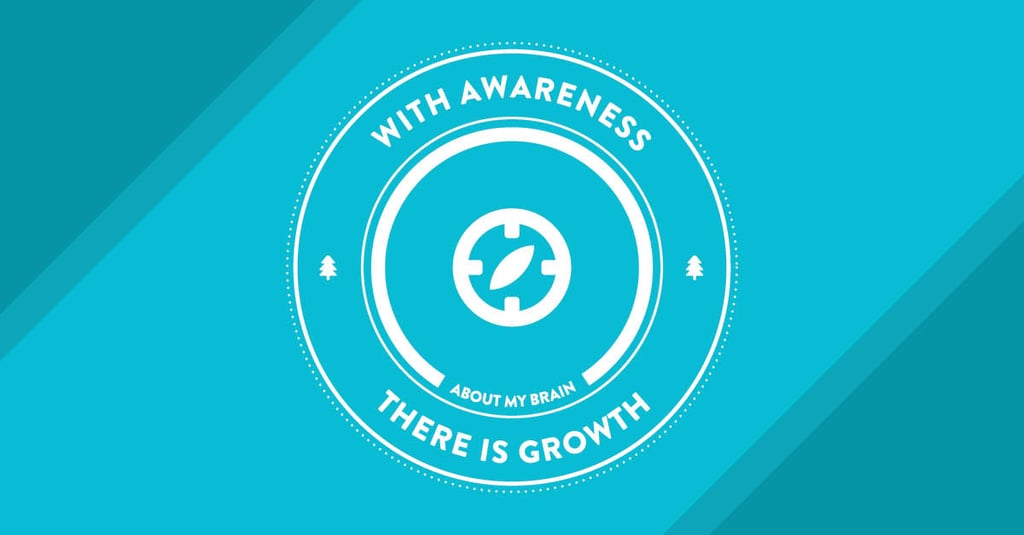Awareness – The Key To Knowing What’s Really Going On?
In a world of open-plan workspaces, headphones and café meetings where everyone is ‘heads down’ in their device, it’s easy for our awareness levels to drop. Learning to pay attention, observe and understand the impact of our reactions, strengths and weaknesses, can significantly influence the way we respond to others.
One of the most important measurements we can undertake as leaders is a 360° feedback assessment, which is the alignment between how we self-rate the way we show up and how others experience us.
This is about awareness – or the absence of it. Significant gaps, either positive (where we perceive ourselves to show up better than we do), or negative (where we under-rate ourselves), often speak volumes as to how we are likely to be lead – both ourselves and others.
Whether you want to explore how you see yourself or gain a more objective view of your capabilities by seeking feedback from others, our  can help!
can help!
Neuroscientists investigating consciousness are concluding that our awareness emerges when information travels back and forth between different brain areas and is not just restricted to the frontal lobes.
In fast-changing times, heightening our awareness is fundamental to maximising our personal effectiveness and ability to persuade and lead others.
It’s time to get our heads up!
How Awareness Fits In Our Leadership Model
Awareness is one of the 16 pillars of the i4 Neuroleader Model. It sits within the competency of Agility. As I unpack in the ‘Agility’ post, the 4 pillars are:
- Intuition
- Awareness
- Influence
- Adaptability
The 3 Elements Of Awareness
Awareness refers to the ability to perceive and become conscious of one’s inner world, while also noticing what takes place in our external environment.
Mindfulness
Being ‘mindful’ means to be aware of our present thoughts, emotions and actions. Developing this capacity increases the ability to manage our emotional state and to be more effective.
Mindfulness can have a bit of a ‘woo-woo’ reputation, but that is to misunderstand it. It’s the result, not the means of achieving it that matters. Neuroscience now proves that mindful-meditation can improve our ability to be more present, to have better self-control, reduce stress and boost short-term memory.
These can also be achieved through a fast-expanding array of wearable devices like Muse, linked to app-based programmes, that help us to achieve a focused, mindful state. For leaders, calming and focusing our brain (and the brains of those around us) is critical in today’s stressful environments. Research shows that we can improve our wellbeing and effectiveness by taking a few minutes each day to practice mindful meditation (or use a device).
In the same way as Fitbits and other wearables that monitor activity and heart-rate are now commonplace, neuro-wearables such as Muse are an increasingly important leadership tool.
Open To Feedback
Seeking feedback is as simple as asking others to describe how they see us. This is an easy and obvious way to gain insights that we otherwise might miss. It can also affirm what we are doing well or badly and how we are impacting others. These are all important pieces of information that we can use to enhance our performance.
As leaders we can become reluctant to seek feedback. A distinguishing factor of many performance frameworks is that feedback is one-way and top-down. We are missing out. When feedback is framed properly (and not through a negative or critical lens) people have the opportunity to improve their understanding of themselves and how others perceive them.
We are used to the idea of elite athletes having continual feedback from specialist coaches, yet are reluctant to do the same for ourselves. If we are to become elite leaders, getting comfortable with great feedback is pivotal.
As leadership experts Jim Trinka & Les Wallace, wrote in ‘A Legacy of 21st Century Leadership’:
Feedback is a gift. Ideas are the currency of our next success. Let people see you value both feedback and ideas.
Peripheral Vision
Many performance gains are made on the edges. Peripheral vision refers to the ability to see objects and movement outside of our direct line of vision and is an edge that most of us under-appreciate or exploit. It provides us with important information from our environment that we are often unaware of. With practise however, we are able to uncover the hidden value.
As leaders we know that non-verbal language makes up over 80% of communication. Words represent only a small part of the message. By being alive to what our peripheral vision is telling us in terms of body language, expressions, sub-conversations and groupings, we can glean a much better picture of what’s really going on.
How is our message really landing? What are people thinking and feeling? Why are they saying one thing and indicating another (and what must we do to counter?)
There is a mass of data that can help us and that also helps our intuition. We know it’s there – we just need to realise its value and be more attuned to make sure we are getting the whole picture.
- i4 Neuroleader (353)
- Leadership & Culture (325)
- Brain Health & Wellbeing (202)
- Innovation (97)
- Performance (85)
- Our News (80)
- Collaboration (68)
- Agility (53)
- Practitioner Stories (44)
- In The Press (36)
- Make Me A Leader (33)
- Balance (31)
- Integration (30)
- Imagination (29)
- Awareness (23)
- Brain-Friendly Channel (22)
- Communication (22)
- Curiosity (21)
- Inspiration (19)
- Intuition (19)
- Attitude (17)
- Courage (16)
- Adaptability (14)
- Case Studies (14)
- Drive (14)
- Generosity (13)
- Brain-Friendly Leadership (11)
- Ethics (9)
- Mental Readiness (9)
- Influence (8)
- Retreat (6)
- Brain-Friendly Leadership (1)
- Oracle Cards (1)
- 1 April 2025 (1)
- 1 March 2025 (9)
- 1 February 2025 (3)
- 1 September 2024 (4)
- 1 July 2024 (2)
- 1 June 2024 (6)
- 1 May 2024 (2)
- 1 April 2024 (3)
- 1 March 2024 (1)
- 1 November 2023 (1)
- 1 August 2023 (1)
- 1 July 2023 (2)
- 1 June 2023 (2)
- 1 May 2023 (4)
- 1 April 2023 (2)
- 1 March 2023 (7)
- 1 February 2023 (4)
- 1 January 2023 (1)
- 1 September 2022 (1)
- 1 May 2022 (3)
- 1 April 2022 (1)
- 1 March 2022 (5)
- 1 February 2022 (4)
- 1 January 2022 (4)
- 1 December 2021 (2)
- 1 November 2021 (4)
- 1 October 2021 (3)
- 1 September 2021 (6)
- 1 August 2021 (1)
- 1 April 2021 (1)
- 1 December 2020 (2)
- 1 November 2020 (1)
- 1 September 2020 (1)
- 1 August 2020 (1)
- 1 July 2020 (3)
- 1 June 2020 (4)
- 1 May 2020 (3)
- 1 April 2020 (4)
- 1 March 2020 (6)
- 1 February 2020 (4)
- 1 January 2020 (2)
- 1 December 2019 (3)
- 1 November 2019 (3)
- 1 October 2019 (5)
- 1 September 2019 (4)
- 1 August 2019 (4)
- 1 July 2019 (4)
- 1 June 2019 (5)
- 1 May 2019 (9)
- 1 April 2019 (9)
- 1 March 2019 (8)
- 1 February 2019 (7)
- 1 January 2019 (8)
- 1 December 2018 (5)
- 1 November 2018 (10)
- 1 October 2018 (16)
- 1 September 2018 (9)
- 1 August 2018 (10)
- 1 July 2018 (9)
- 1 June 2018 (8)
- 1 May 2018 (9)
- 1 April 2018 (9)
- 1 March 2018 (9)
- 1 February 2018 (8)
- 1 January 2018 (8)
- 1 December 2017 (6)
- 1 November 2017 (9)
- 1 October 2017 (9)
- 1 September 2017 (8)
- 1 August 2017 (10)
- 1 July 2017 (8)
- 1 June 2017 (8)
- 1 May 2017 (9)
- 1 April 2017 (8)
- 1 March 2017 (6)
- 1 January 2017 (3)
- 1 December 2016 (4)
- 1 November 2016 (5)
- 1 October 2016 (4)
- 1 September 2016 (2)
- 1 August 2016 (4)
- 1 July 2016 (4)
- 1 June 2016 (2)
- 1 May 2016 (3)
- 1 April 2016 (3)
- 1 March 2016 (7)
- 1 February 2016 (2)
- 1 January 2016 (5)
- 1 December 2015 (2)
- 1 November 2015 (2)
- 1 October 2015 (4)
- 1 September 2015 (2)
- 1 August 2015 (2)
- 1 July 2015 (1)
- 1 June 2015 (3)
- 1 May 2015 (4)
- 1 April 2015 (5)
- 1 March 2015 (3)
- 1 February 2015 (3)
- 1 January 2015 (3)
- 1 December 2014 (3)
- 1 November 2014 (3)
- 1 October 2014 (3)
- 1 September 2014 (5)
- 1 August 2014 (4)
- 1 July 2014 (5)
- 1 June 2014 (3)
- 1 May 2014 (1)
- 1 March 2014 (1)
- 1 December 2013 (2)
- 1 November 2013 (1)
- 1 July 2013 (1)
- 1 June 2013 (1)
- 1 May 2013 (3)
- 1 April 2013 (1)
- 1 March 2013 (2)
- 1 February 2013 (1)
- 1 January 2013 (2)
- 1 November 2012 (1)
- 1 October 2012 (1)
- 1 September 2012 (1)
- 1 August 2012 (2)
- 1 July 2012 (1)
- 1 June 2012 (1)
- 1 May 2012 (2)
- 1 April 2012 (1)
- 1 February 2012 (1)
- 1 January 2012 (1)
- 1 November 2011 (1)
- 1 October 2011 (3)
- 1 September 2011 (2)
- 1 July 2011 (1)
- 1 June 2011 (1)
- 1 May 2011 (1)
- 1 April 2011 (1)
- 1 March 2011 (1)
- 1 February 2011 (2)
- 1 January 2011 (4)
- 1 December 2010 (4)
- 1 November 2010 (3)
- 1 October 2010 (5)
- 1 September 2010 (4)
- 1 August 2010 (4)
- 1 July 2010 (3)
- 1 June 2010 (4)
- 1 May 2010 (7)
- 1 April 2010 (5)
Subscribe by email
You May Also Like
These Related Stories

Putting Agility At The Heart Of Everything

Aligning Brain, Heart & Gut to Foster Agility




No Comments Yet
Let us know what you think